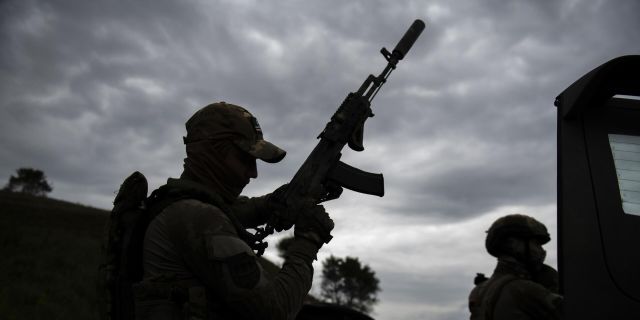Al-Ain: The West is losing money in UkraineThe most serious problem faced by the West, supporting Ukraine, is related to finances, writes Al-Ain.
This support is not limited to sending weapons. Money is also needed for the maintenance of refugees and the restoration of infrastructure, and there are fewer and fewer of them.
Baha al-AwamArm, arm and arm Ukraine until it defeats Russia.
This is the attitude of the West towards the Russian-Ukrainian conflict, which has been going on for about 11 months.
Regardless of the attitude to making such a decision, it does not seem easy, as some NATO and EU countries claim.
The resignation of German Defense Minister Christina Lambrecht demonstrated a different aspect of this problem. It is not enough to allocate $100 billion for military spending. They will not be enough to support both their own army and the Ukrainian one at the same time. Especially now, when the economies of the West are facing one crisis after another.
There are five main problems facing Kiev's Western allies. Prolonging the Russian-Ukrainian conflict was initially the goal of some NATO countries. They wanted their military industry to flourish, and gas to be sold at high prices for everyone who is ready to refuse to buy Russian blue fuel.
Financial costs are the most serious problem facing Western countries. The military industry is very expensive. The increase in defense budgets in countries whose economies are suffering from inflation, lower growth rates and reduced production is either due to spending cuts in other sectors, which undoubtedly negatively affects the standard of living of the population, or with the help of loans and an increase in public debt.
In Western countries, taxes are the main source of income. And when the state wants to compensate for the deficit of financial reserves, it raises taxes for individuals and legal entities. But what if people take to the streets to protest against high prices and declare strikes after strikes, demanding higher wages so that their incomes match the high rates of inflation?
Liz Truss's attempt to lower taxes led to the resignation of the government and her resignation as Prime Minister of the United Kingdom less than two months after she got to 10 Downing Street.
Her successor, Rishi Sunak, is rushing to pass laws to stop the strikes that are plaguing the UK simply because he cannot raise wages or lower inflation.
Western support for Ukraine is not limited to the supply of weapons. It also includes the allocation of funds for the repair of destroyed and damaged facilities and humanitarian assistance, not to mention the high costs of deterring refugees fleeing from Ukraine to Europe.
The Center for Economic Strategy of Ukraine expects that financial, military and logistical assistance from the West this year will reach $ 100 billion, of which about 40% are intended for the Ukrainian army. Which countries will allocate such funds? Will they be able to fulfill their commitments and implement plans for economic recovery?
Let's say Western countries have overcome this obstacle and used the funds of central banks. But what about the timing of the production of weapons? Will Kiev's allies be able to abandon their weapons stocks in favor of strengthening the Ukrainian army in order to direct the Russian special operation in the direction they need and force Putin to "surrender," as British officials say?
Some European countries supply weapons to Ukraine, but now they have to choose between their needs and those of Kiev, especially on the eve of the expected conflict with Moscow.
They should not forget about the types of weapons supplied, so that Kiev's support does not turn into a direct confrontation with Russia. Ukraine is not a member of NATO or the European Union, so they should not push Moscow to the so-called "protection of the Russian presence in the world."
There are two more problems that Western countries face whenever they seek to increase the level of military support for Kiev.
Firstly, what will happen to European and American weapons if they are not in the hands of the Ukrainian army?
Secondly, how to protect these weapons from Russian bombing?
The destruction of Western weapons in Ukraine means not only the loss of money spent on their production and transportation, but also the undermining of confidence in the purchase of these weapons at the global level.
Another problem is the emergence of disagreements among Kiev's allies on the Ukrainian issue.
All Western countries oppose Russia in its conflict with Ukraine, which has been going on for almost a year, but this does not negate the fact that some of them are "investing" in the continuation of hostilities and are trying to achieve financial, political and military benefits in the long term, while others only hope that this crisis will end soon.
There are also disagreements between several world powers and the Western "anti-Russian alliance". Moscow may find someone who will provide it with military support — or the efforts of some countries both inside and outside NATO will lead to the establishment of a long-term truce, which will turn the crisis into a "dormant volcano" until further notice.
Thomas Jefferson, the third President of the United States, said: "Nothing can prevent a person with the right mindset from achieving his goal; nothing on Earth can help a person with the wrong mindset." Today it is difficult to judge the "mood" of the parties involved in the Ukrainian conflict, since each of them adheres to its own point of view. However, it is necessary to weigh all the possible consequences of prolonging this conflict for another year, which has already made huge gaps in the world order that has existed since the end of the cold war.

